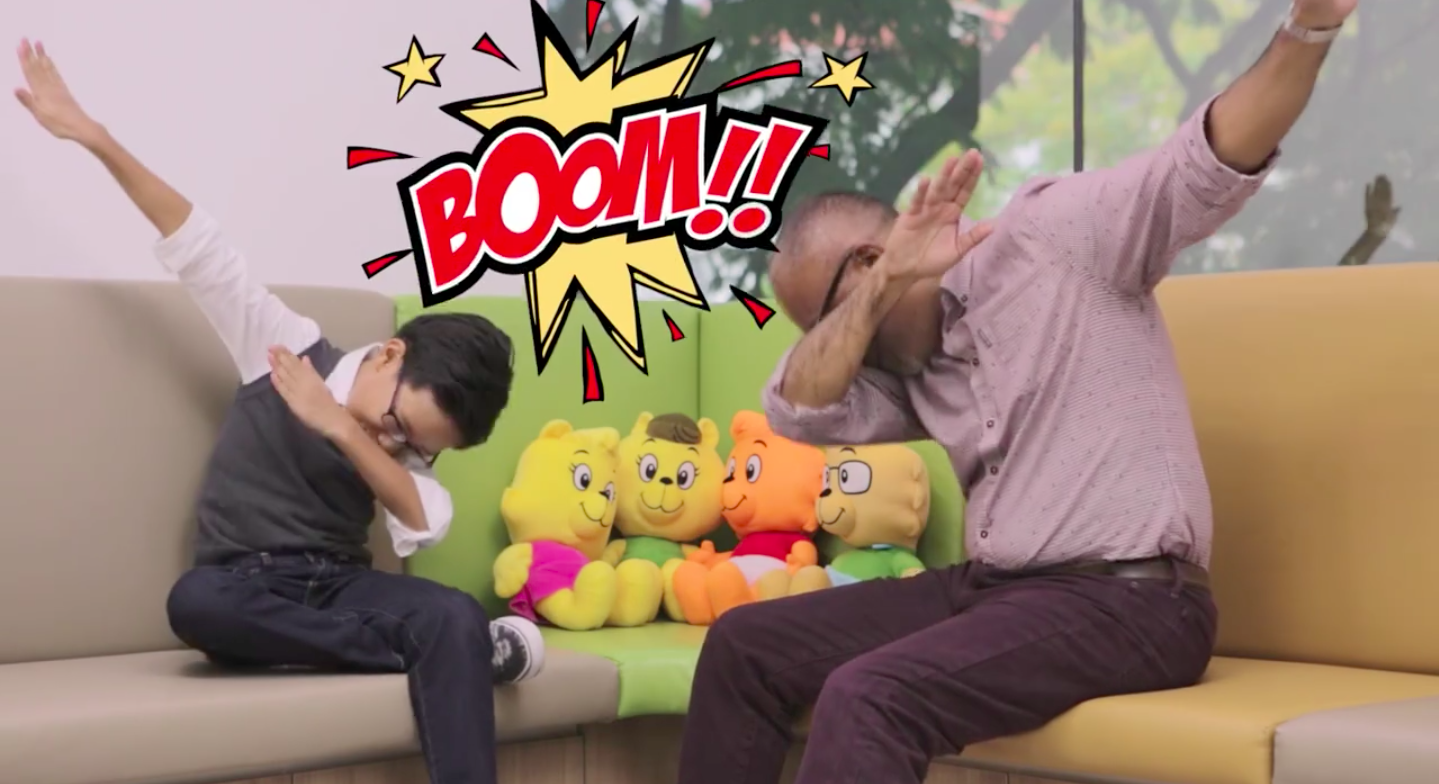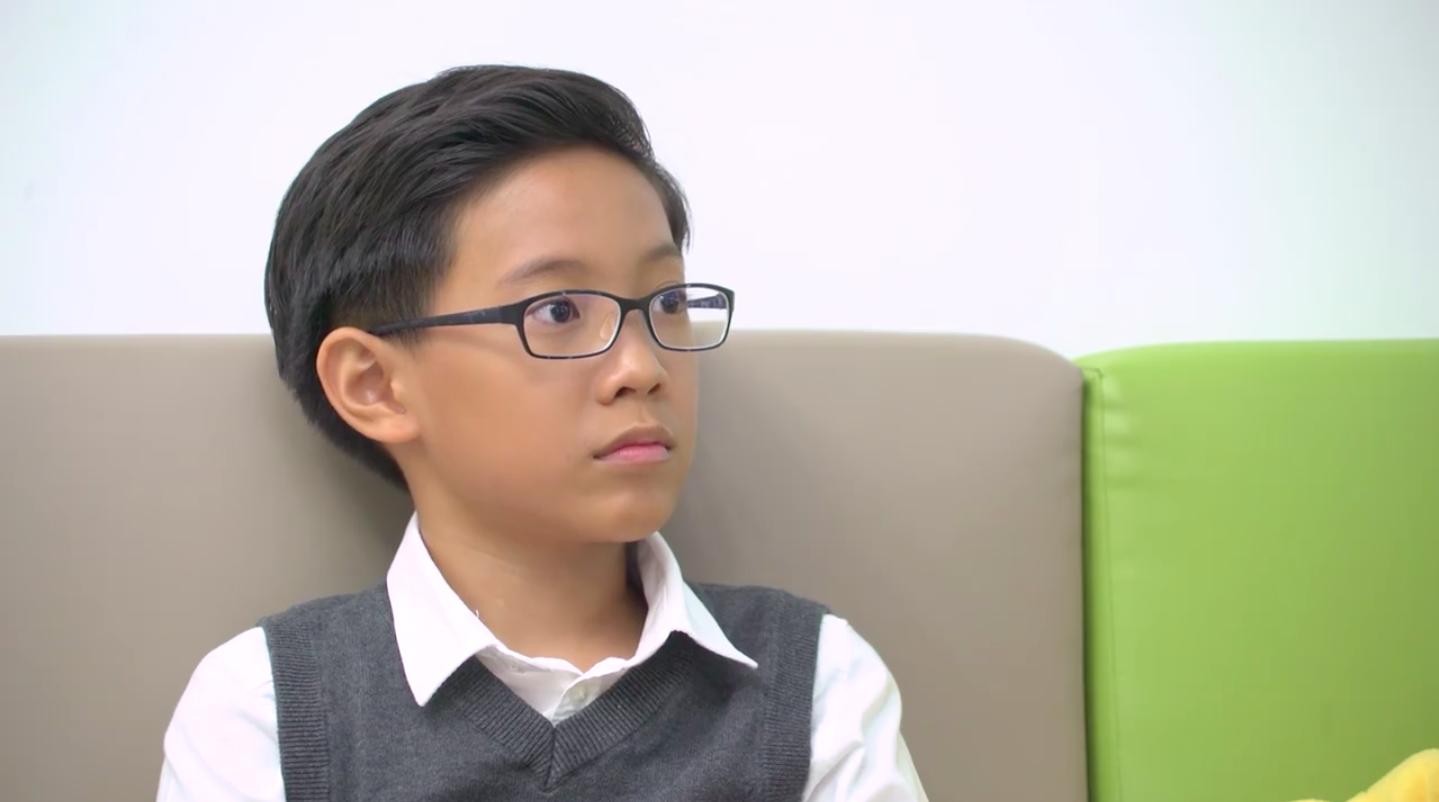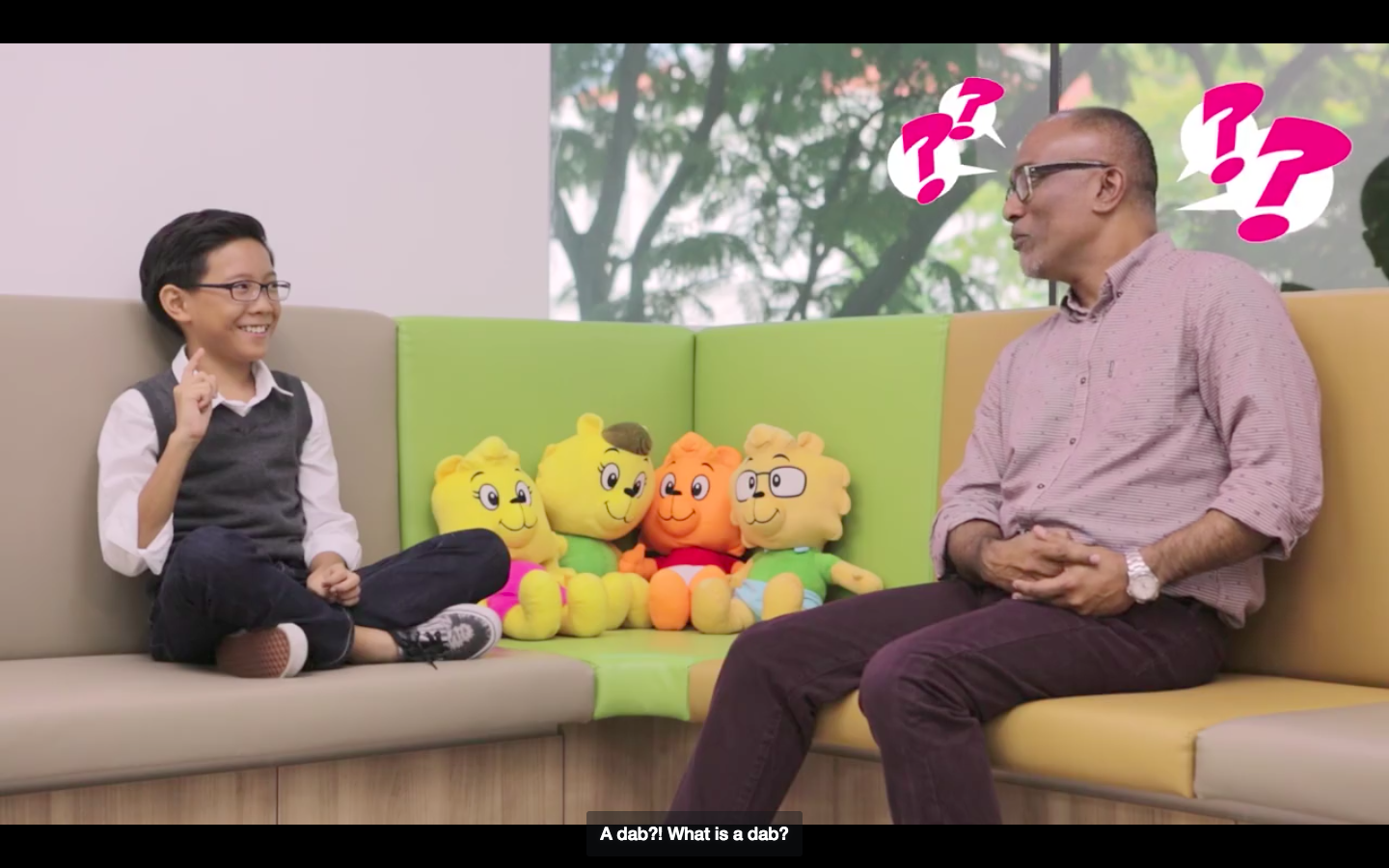Now, if you know who Cherian George is, you'll know that he's a respected Singaporean associate professor in journalism.
George, who has for years written incisively on the state of the media and politics in Singapore, was about four years ago unceremoniously chased out of NTU after being repeatedly denied tenure, despite being in general, an awesome academic.
He has since moved to Hong Kong, where he now teaches and continues to write important books at the Hong Kong Baptist University.
But we digress.
He has since done a few interviews, but he declares none have ever been as challenging for him as one with 11-year-old Kevin Lim, who asked him some pretty tough questions, like:
- What's the difference between a teacher and a professor?
- Can you do a dab? (spoiler: he had to learn, but he did it in the end)
 Screenshot from video
Screenshot from video
- When teachers get angry or fierce, does it mean that they are unkind people?
- If I don't like some of my schoolmates, does that make me an unkind person?
- Are people in Hong Kong unfriendly?
- Why is it important for kids to know the latest news?
And this doozy:
- What do you think will make Singapore a better place for everyone?
So you thought only trained journalists can ask tough questions, huh?
But hey, the prof tackled them like a pro, and we particularly like his answers to the last two, which we think are worth everyone reading or listening to:
1) Why is it important for kids to know the latest news?
"Well I mean, there's a lot of stuff happening in the world, right — good news and bad news. And I think eventually — not now, a lot of these things you don't have to worry about now, but later on you will need to do things like, you know, voting for leaders, you will need to uh, be much more responsible about the environment, you will need to make decisions about all kinds of things that will affect other people.
So it's a good idea to start understanding the way the world works, to understand how different countries see things, what's going on in different countries. Many of these things will affect Singapore, right?
But even if they don't affect Singapore, I think it's important to find out about the problems that other countries face, about life there, yeah. Because sometimes even if they don't affect us, we actually affect them. The decisions that we make about, say, the environment, could have an impact very far away.
So as responsible human beings, it's important to know what's going on.
In a way it's related to my own views about what it means to be kind. The easy part is being kind to the people you actually see — say, strangers around us. I think most of us, if we see a stranger in trouble, someone who is lost near your school, doesn't know the way to the MRT station — you probably will help them out. So those acts of kindness for strangers that we see is actually the easiest thing. It comes very naturally. I think it's much harder to remember that we have to be kind even to strangers we don't see.
So I think that is the tough part. Can we be kind in a way where we remember that our actions have effects on people and things and places that we don't even know, and can't even see? So that requires educating ourselves about the way the world works, where our food comes from, where our clothes come from, about the countries where these things are made, and that I think probably is the ultimate form of kindness that we should be working towards.
That's about as simply deep as a person can get in conveying so much meaning in such simple words to someone who is still technically a child.
Also at this point, Lim basically wore this slight deer-in-headlights expression on his face, especially near the end of his answer:
 Screenshot from video
Screenshot from video
Don't worry, Kevin, we don't blame you for getting confused.
And here's his answer to the second question:
2) What do you think will make Singapore a better place for everyone?
"Wow. That's a big question; there are so many ways in which we can as individuals help our society be better. I guess if people were more aware that we are a big crowded city with many different cultures, different ways of thinking, right — different age groups, and we shouldn't make the mistake of thinking everyone is like us.
So it's easy to care for people who are just like us; it is harder to remember to care for people who are different. And Singapore is full of differences, right -- in terms of language, culture, religion, age and so on. And also class, meaning that there are people who are richer than other people. There are people who need help.
And I think, you know, if we remember that Singapore has all these different types of people and not just think about what's good for people like us, that will make Singapore a better place. (emphasis ours)
I think the best way for anyone to learn is to look at good examples. When you see someone behaving well and you know that is a way people show care, that's something you can learn from. Look for role models, you know, if you find that a teacher or parent or relative or classmate or even someone in the media, celebrity and so on, if you are moved by their kindness, if you are moved by the way that they behave, learn from it.
So there are acts of kindness that are everywhere that they can learn from."
Indeed, we agree.
Here's the full video on the Singapore Kindness Movement's Facebook page:
Top photo: Screenshot from video
If you like what you read, follow us on Facebook and Twitter to get the latest updates.
